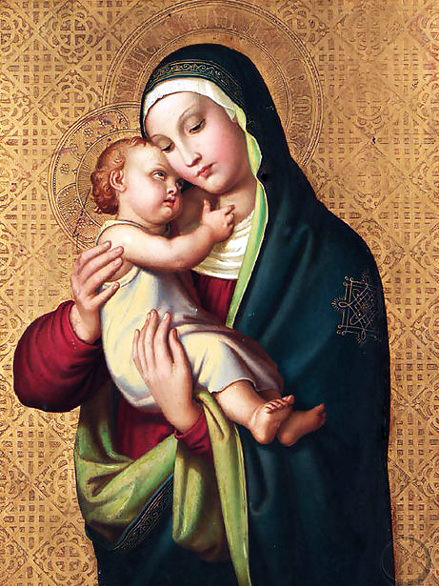| “What would you do if you were me?” That’s the haunting question a young Syrian woman by the name of Taimaa Abazli asks at the end of a video Time Magazine posted on its website, a prelude to a year-long series that follows four refugee mothers and their newborn babies. Like so many in refugee camps in Greece, Abazli comes from an educated, middle-class world many of us would find familiar. She was a music teacher who envisioned life in a “nice house.” Now she describes her life as “ugly,” telling Time, “I didn’t expect any of the things that are happening to me.” Looking at her face, the way she and her husband discuss the baby’s name and the tears she sheds as she wonders why she is so unlucky, it’s hard not to feel the contrast with the plenty so many of us will enjoy Christmas Day. |
| | But her plight may be the most relevant Christmas story you will hear today. The story of Christmas forces us to confront Abazli and the many other refugees in the world. It also forces us to confront the many in our own communities who struggle without homes or without hope in many different ways. Their stories may make us uncomfortable, just as scriptural accounts of the life of Christ can lead us to a self-examination that ventures far from comfort zones. But it is a journey we must take if we believe in mankind, and if we believe in the hope this holiday truly represents. Jesus, whose birth much of the world celebrates Sunday, taught of the power of humility, the greatness that can arise from destitute beginnings and the divinity of charity. His mother gave birth far from home, in less than ideal circumstances. His earthly parents were forced to flee to a foreign country because of a murderous dictator whose answer to a perceived threat to power was to kill all children under the age of 2. It all sounds so pathetically current, as if cut and pasted from the latest news website. Were Mary and Joseph fleeing today, the angel may not have sent them to Egypt. Extremists there have been on a relentless rampage against Christians since the dawn of the Arab Spring. On Dec. 11, they bombed a Coptic Christian church in Cairo, killing 25. Worldwide religious persecution doesn’t just target Christians. Throughout North Korea, China, Saudi Arabia, Sudan, Syria and other countries, religious adherents are regularly denied rights, tortured or executed. But it all seems far away from hearth and home this Christmas, where people are much more apt to get upset at store clerks who wish a “happy holidays” instead of a “Merry Christmas” than they are with reports of atrocities. But can we afford to ignore it? This year, as the week before Christmas began, Europe went on a massive manhunt for a man believed responsible for a murderous attack in Berlin with a truck. He reportedly had sought for asylum in Germany. Terrorists have complicated charitable intentions by hijacking and infiltrating the truly needy, or at least by making many of us believe this is so. They have spread confusion meant to distract us from what really matters. Locally, we become confused by how criminals have infiltrated the homeless, complicating what we like to define as legitimate need. The meaning of Christmas, when all the tinsel and glitter is stripped away, is much simpler than all that. It can be summed up in one word: hope. It is a word as important to us as to the helpless mothers and children in refugee camps. The baby born in Bethlehem about 2016 years ago healed bodies and spirits. He brought mercy and justice. He spoke of mansions and rewards differently than those we imagine. He taught us how we wander this frail existence together and how we serve Him when we serve others. Ultimately, he transcended the temporary nature that characterizes everything our eyes can see. Taimaa Abazli, her fellow refugees and the many needy around us may not see that hope. The lingering question of Christmas is how we can change that, as individuals and as a nation. |


 RSS Feed
RSS Feed

